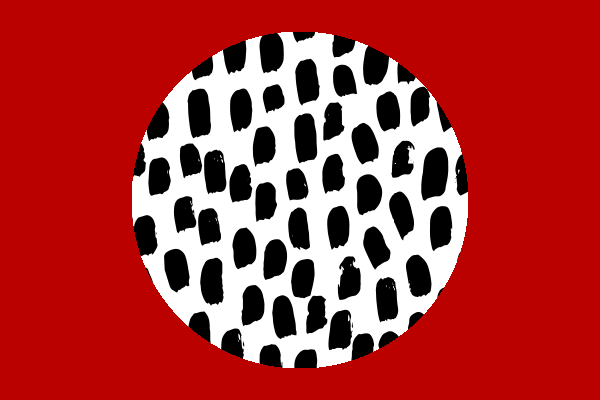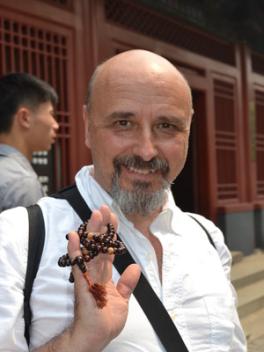Obsession Story: Matthew Cariello and The Catcher in the Rye

For this series, we reach out to a member of the department who has a very particular obsession and ask them to share it with the world. In this edition, Senior Lecturer Matthew Cariello tells us how J.D. Salinger's The Catcher in the Rye continues to be pivotal in his life and teaching.

I began reading The Catcher in the Rye in 1974 and never stopped. I was a high school sophomore and hardly knew what was going on. Although I read the whole thing, probably 10% got through. Some guy with a funny name is P.O.'d, then he cries but he’s still P.O.'d. Then he cries again. I didn’t know it then, but a 16-year-old can’t read this book about a 16-year-old. But I kept coming back, reading it again every year and all through college, as a kind of palate cleanser at the end of the semesters. The book became an intuitive part of my life, always there, somewhere in background, but I was still just barely circling the story, still skimming it, not really reading it. But then three things happened that changed the way I read that book.
First, I got just a little bit older. Turns out that 26-year-old me actually knew more than 16-year-old me. Remember that Holden is a liminal character, a man-boy who grew six inches in a year and has half a head of gray hair. He is Janus, looking forward and backward at the same time. By the time I was 26 I knew that I too was a liminal character and that was the just the way life was.
Second, I took a class at NYU with Woolf scholar Mitchell Leaska, and the first thing we read was Catcher, and in the first class he mentioned – almost casually, like it was perfectly obvious – that the amazing first sentence of the book (“if you really want to hear about”) mentions Charles Dickens’ David Copperfield, and wasn’t that interesting. When we look at the beginning of David Copperfield, we learn that David Copperfield was born with a caul, a portion of the amniotic sack that gets stuck to a newborn and often looks like hat. A red hat. Holden wears a red hat and his last name is Caulfield, which half caul and half field, (un)like Copperfield, which is half copper and half field. And Holden dreams of standing in a field of rye (a copper field?) in his hat (caul), stopping kids from falling off the unseen cliff at the edge of that field. I didn’t know what I knew, but I knew something important was happening. Everything I’d ever read was now connected to every other thing in ways I could barely comprehend – and it didn’t matter if that connection was intentional or not. Salinger wrote from a place of almost pure liminality, looking backward and forward in one sweeping rhetorical gesture.
Third, in 1988 my younger sister died in a car crash. It was the kind of event that’s inevitably greater than the sum of its parts, and it put me in the same unenviable position as Holden Caulfield, who, for the time of the novel and the two years before, has been grieving his younger brother Allie, who’s “dead now. He got leukemia and died when we were up in Maine, on July 18, 1946. You’d have liked him.” The book took on a different, larger cast, one more closely tied to life and death.
At that point, the book exploded on the page in my mind. Every sentence began to burn with a preternatural awareness of the human condition. Allie’s death was everyone’s death, and Holden’s life was everyone’s life. His obsession with the ducks isn’t really about the ducks (which, by the way, don’t go anywhere in the winter), but about loss. (To be fair, the book is flawed in the same way many postwar books by men are flawed. Holden is a privileged white boy in a world that favored and continues to favor privileged white boys. All the women in the book are either slutty, saintly, childlike or absent (or all of the above). Holden seems to live in a world without people of color, even in the heart of Manhattan. And his nascent awareness of his own queerness is both touching and frustrating: at 16, he doesn’t know if his former teacher Mr. Antolini is “petting or patting” him.)
In response to Allie’s death, Holden injures himself. “I slept in the garage the night he died, and broke all the goddamn windows with my fist, just for the hell of it.” From this point forward, he has a wound that won’t heal and “can’t make a real fist anymore,” and so has no self-defense against the impinging world, including the two men in the book who leave him bloody and beaten. This initial injury is so severe that he’s in the hospital and misses Allie’s funeral and so never engages in active mourning, instead falling into a cycle of melancholy we now call PTSD. When his kid sister Phoebe asks what he likes, what he really likes, he can’t think of anything but James Castle, who had jumped out a high window to escape bullies while wearing Holden’s borrowed sweater. But that’s not what he tells her. Instead he says “I like Allie.” Even though it’s killing him, Holden has found a home in his unending grief. The only thing left for him is to die. And does, just a little, after visiting a tomb, the place of the dead in the Metropolitan Museum. He passes out and falls from his own height and feels better, “not so damn dizzy any more.” It turns out that in order to stay alive you have to die a little bit all the time.
In that last scene at the Central Park carousel in the rain, Holden watches Phoebe go around and around, “sort of afraid that she’d fall off the goddamn horse” yet knowing that “if they fall off, they fall off, but it’s bad if you say anything to them.” There is no catcher. He watches her and weeps and it rains buckets like a bastard and the world weeps with him and he gets soaked except for his head, safe under the red hat he got from David Copperfield. He cries not because he’s sad but because he’s “so damn happy, if you want to know the truth.”
I’ve read the book about 100 times. I teach it twice a year. I think I’m beginning to figure it out.
